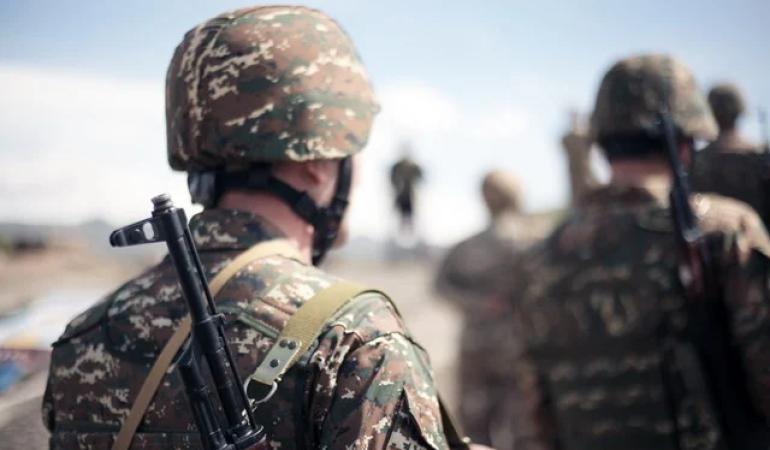
There are dozens of Armenians in Azerbaijani prisons who were arrested or captured after the 2020 Artsakh war. Why don't Azerbaijani human rights defenders protect Armenians? What does their return depend on? BBC Russian service tried to answer these questions in their article.
Who are the Armenian prisoners in Azerbaijan?
It is not known how many Armenians are in Azerbaijani prisons.
Among them are military personnel, civilians and members of the NKR leadership. The security forces of Azerbaijan, among others, also arrested three of the former presidents: Arkady Ghukasyan, Bako Sahakyan and Araik Harutyunyan.
They were charged with terrorism. In the joint statement of the Prosecutor General's Office of Azerbaijan and the State Security Service (SSS), Araik Harutyunyan is accused of lying mines in the territory of the country during the 2020 Artsakh war, creating illegal military formations, importing illegal weapons and shelling Azerbaijani cities.
BBC writes that during the 2020 44-day war, according to many observers, both sides fired at civilian objects, among other things. As noted by the Human Rights Watch, in addition, both the Armenian and Azerbaijani sides used cluster munitions in the war.
The Armenian Foreign Ministry condemned the arrest of former presidents and other members of the former NKR leadership.
It is believed that the situation is now the most difficult for the prisoners of war. Armenian human rights defenders say that many of the soldiers died in captivity. Besides, Armenia does not believe that there are only 33 Armenian soldiers in Azerbaijan. According to Armenian data, as of the spring of 2023, they are more than 100.
Lawyer Siranush Sahakyan, who works for the protection of prisoners' rights, says that official Baku has recognized 55 persons detained in Azerbaijan, among whom there are both military and civilian persons, as well as members of the NKR leadership.
According to her, there are "another 80 prisoners not officially recognized by Azerbaijan, who have become victims of forced disappearance", and no one follows their fate.
Neither the Prosecutor General's Office nor the Ministry of Foreign Affairs responded to the BBC's question about how many Armenians are being held in Azerbaijan.
According to the BBC, the Armenian Foreign Ministry and the Ombudsman did not respond to their requests either. The International Committee of the Red Cross refused to give figures in its response.
Who will protect the rights of Armenians?
Azerbaijani human rights defenders, who are usually ready to protect the rights of their fellow citizens, seem to be trying not to interfere in the trials of Armenians.
Human rights defender Eldar Zeynalov says that he has a "neutral-independent" attitude towards Armenian prisoners.
"Receiving information by a human rights dZefender makes sense only when it can be used for criticism, defense campaign, but the special status of Armenians makes this impossible." By "special status" Zeynalov means those who were accused especially of war crimes and crimes against humanity.
According to him, the politicization of the process itself is an obstacle for Azerbaijani human rights defenders in protecting Armenians today. "Any information that can be used to accuse the other (Armenian) side will definitely be exaggerated," he believes.
Eldar Zeynalov himself defended the rights of prisoners during the first war in Artsakh. According to him, since 1994, the authorities of Azerbaijan and Armenia, as well as the Red Cross, have been almost exclusively involved in this issue.
The human rights defender notes that, unlike the ICRC, it is much more difficult for his partners in the country to face groundless accusations, so they can only follow the story from the sidelines.
Problems related to justice and the condition of prisoners
In a recent interview with the BBC, another Azerbaijani human rights defender and political emigrant, Arif Yunus, said that Azerbaijani human rights defenders often fear not only the state, but also public opinion when it comes to Armenians. They cannot protect the rights of Armenians even in cases when international human rights defenders have raised the alarm.
The international human rights organization Human Rights Watch, 4 months after the war, wrote about how Armenian prisoners were tortured in Azerbaijan, and called on the country's authorities to investigate these cases.
The BBC also investigated the killing of Armenian prisoners of war during the war and subsequent border clashes between the two countries.
Today, the health condition of Armenian soldiers in Azerbaijani prisons is monitored only by the International Committee of the Red Cross. The ICRC told the BBC that the results of these observations and their recommendations, according to their own procedure, can only be passed on to the authorities of the detaining party.
The BBC tried to talk to the lawyers of the Armenian soldiers tried in Azerbaijan. However, none of the nine lawyers could be contacted at the time of publication.
Arif and Leila Yunus, who live in the Netherlands, are among the few Azerbaijani human rights defenders who follow the trials of Armenian soldiers in Azerbaijan.
According to them, the trials of prisoners of war are being conducted with violations. In particular, prisoners do not have the opportunity to contact their relatives, and trials are held behind closed doors; journalists cannot find out what is happening in the courtroom.
At the same time, the ICRC claims that it regularly visits Armenian detainees, including to maintain contact with their families. They can communicate through phone calls, emails and pre-recorded videos.